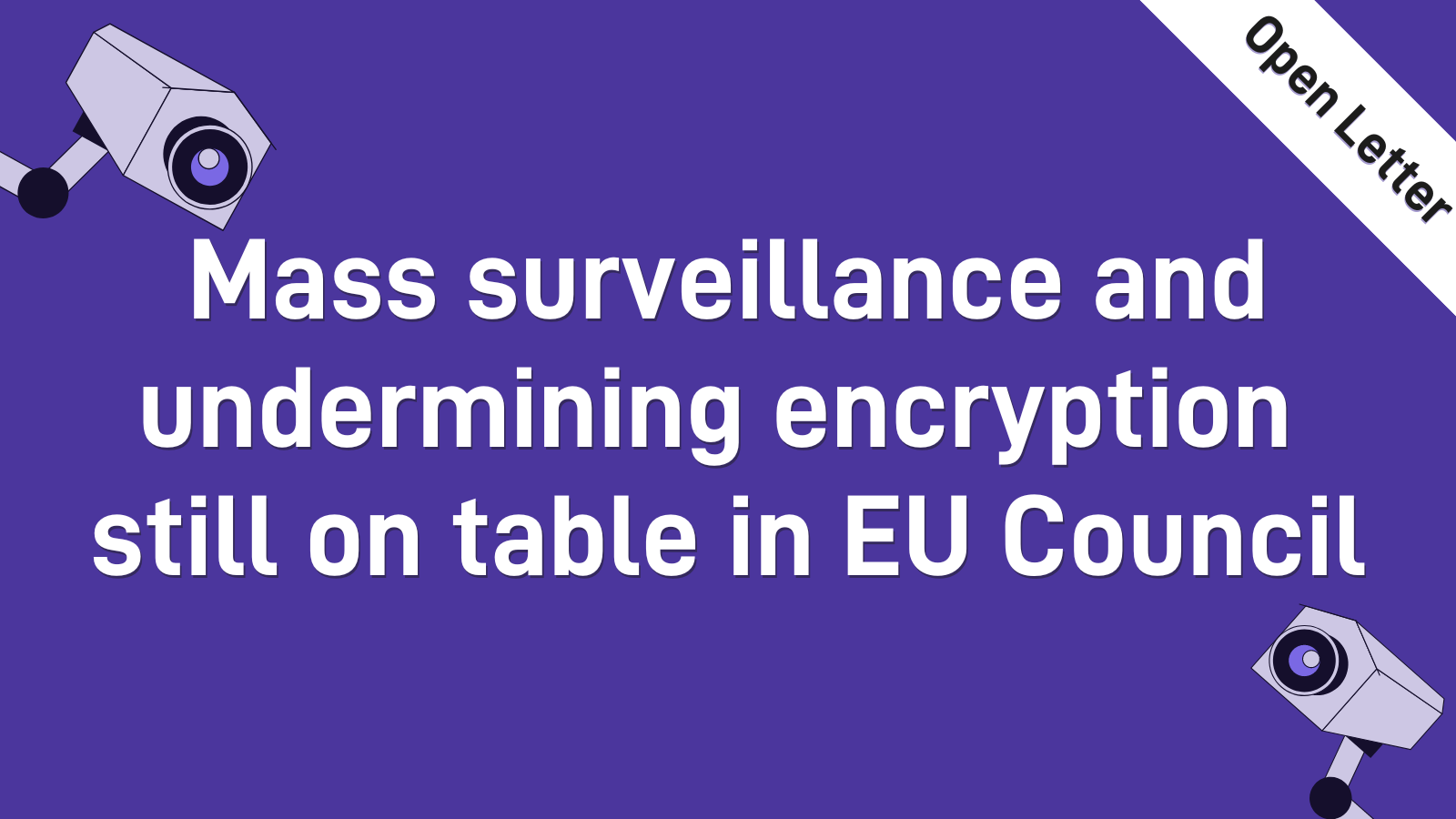Open letter: Mass surveillance and undermining encryption still on table in EU Council - European Digital Rights (EDRi)
edri.orgToday, 17 April, EDRi, in a coalition with 50 civil society organisations and 26 individual experts, call on Member State representatives not to agree to the proposed EU Council position on the Child Sexual Abuse (CSA) Regulation whilst so many critical issues remain.
You must log in or register to comment.
A place to discuss privacy and freedom in the digital world.
Privacy has become a very important issue in modern society, with companies and governments constantly abusing their power, more and more people are waking up to the importance of digital privacy.
In this community everyone is welcome to post links and discuss topics related to privacy.
Some Rules
- Posting a link to a website containing tracking isn’t great, if contents of the website are behind a paywall maybe copy them into the post
- Don’t promote proprietary software
- Try to keep things on topic
- If you have a question, please try searching for previous discussions, maybe it has already been answered
- Reposts are fine, but should have at least a couple of weeks in between so that the post can reach a new audience
- Be nice :)
Related communities
much thanks to @gary_host_laptop for the logo design :)
- 0 users online
- 108 users / day
- 435 users / week
- 1.32K users / month
- 4.54K users / 6 months
- 1 subscriber
- 4.59K Posts
- 116K Comments
- Modlog






There’s a Swedish article about it on SVT, the Swedish national news media outlet. It’s actually strangely long for being on SVT, I think there’s some anti-competition laws that prevent them from doing journalism with too much detail.
I believe the original source is this article from Kontext Press.
Edit: I ought mention that I tried, but I struggled to find any articles about in English.
For some additional context though; the American organisation that tipped off the police here in Sweden was the NCMEC, the National Centre for Missing and Exploited Children.
The police examined the boyfriend whom they’d described as “not prepubescent”, to ensure that he has the same birthmark that appeared in the pictures.
The prosecutor that signed off on the decision to raid this man’s home, Titti Malmros has resigned.
Also this gem, which is from the Kontext Press article.
I can’t help but read this as; it’s perfectly okay to break into a person’s home in the middle of the night, assault them, and take them away from their home without informing them of where they’re going or why, but you can’t possibly accuse a police officer of misconduct; that requires a lot of proof which is magically unobtainable.
I think part of it is a fundamental weakness in the Swedish judicial system where you need clear perpetrators and clear victims, meaning that if you have a group of people committing a crime and you can’t prove that they intentionally cooperated to commit the criminal act or who did exactly what, they may go free (exhibit A). The same goes if you can prove the crime but not the victims (exhibit B).
Of course the bar is higher when it comes to the police, they will pull out all the stops to prevent one of their own getting investigated, but this issue runs even deeper.